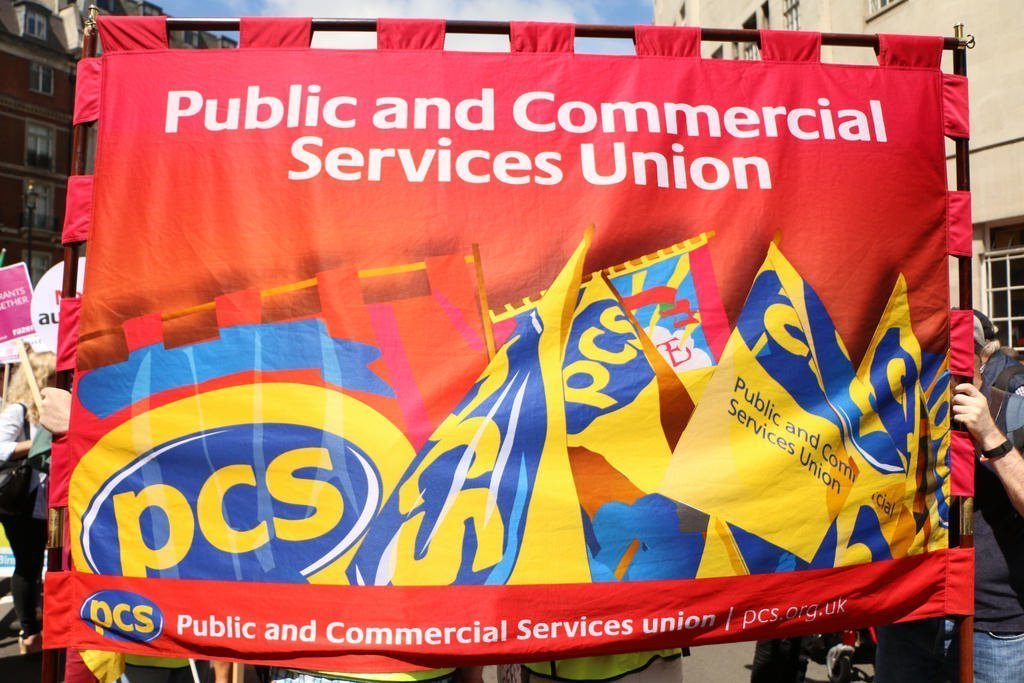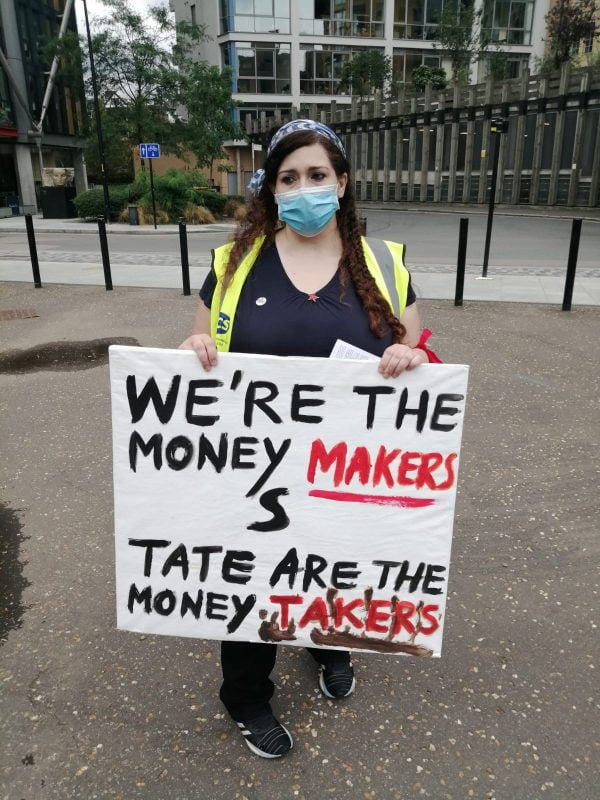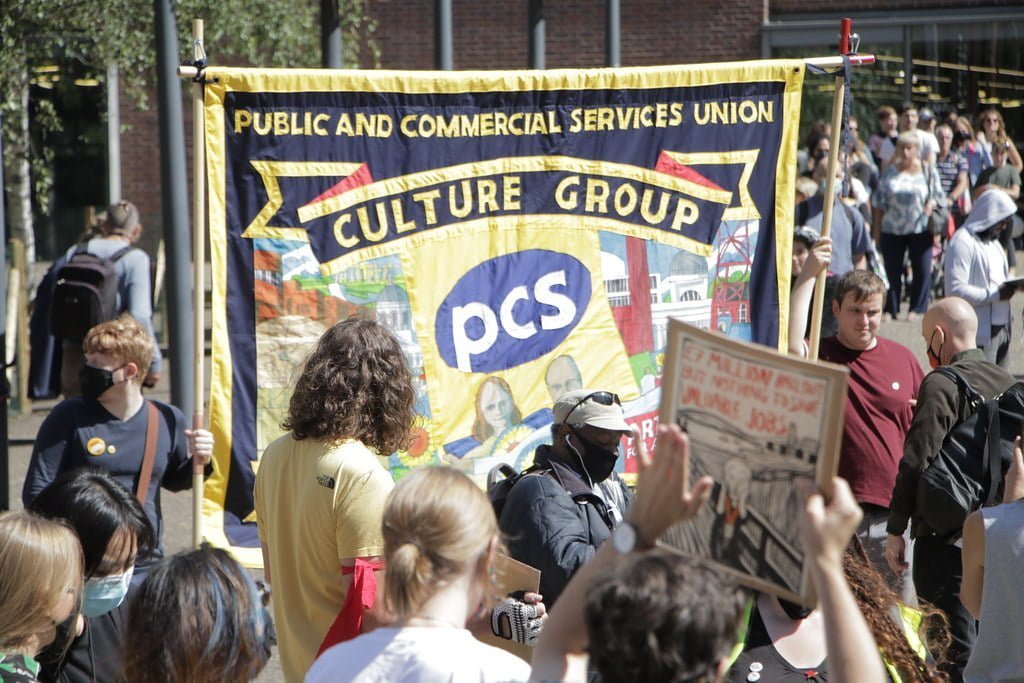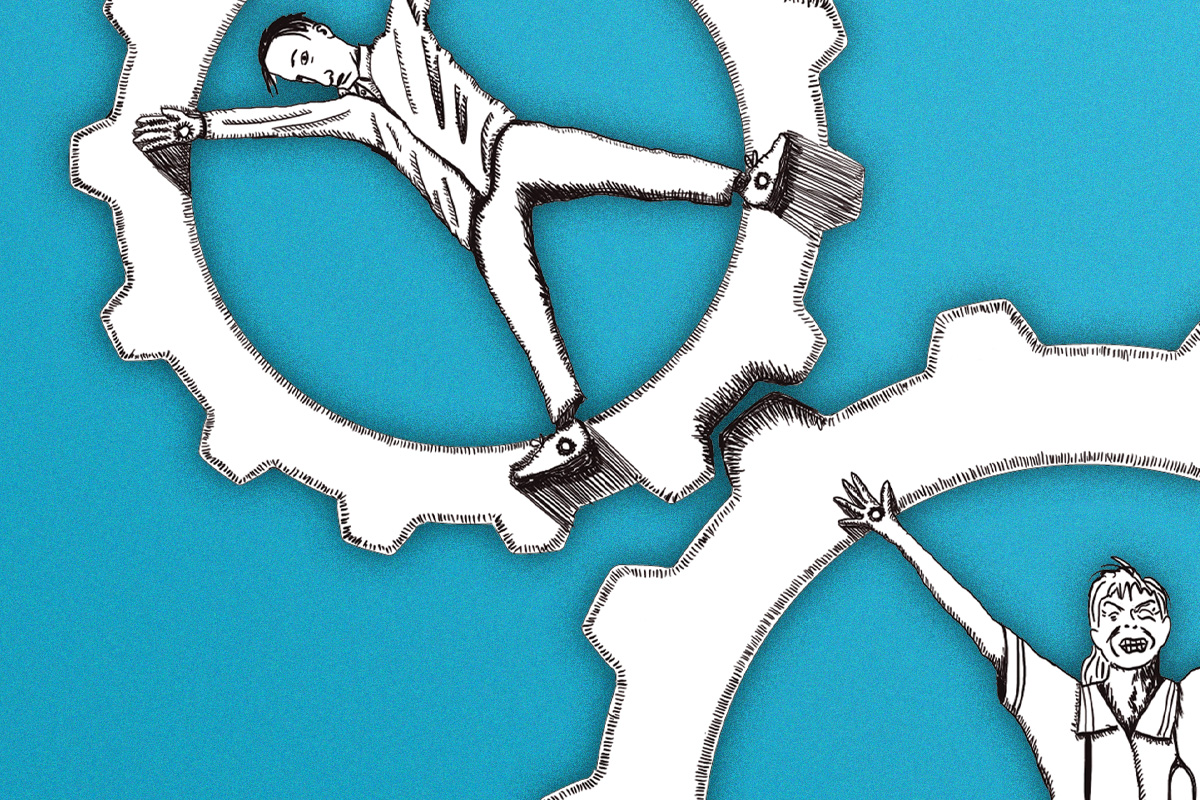The British Museum, the largest museum in Britain, and a major attraction nationally, closed its doors recently, with staff at breaking point.
The museum’s workers are striking for better pay, pensions, and working conditions amidst the cost-of-living crisis, as part of a wider campaign being waged by the Public and Commercial Services Union (PCS).
Similarly, PCS members at other cultural institutions – including the Wallace Collection, Historic England, National Museums Scotland, and the National Museum of Liverpool – are also taking action.
In a recent national ballot, more than 86% of voting PCS members across the country said Yes to strike action.
PCS members at the British Museum (BM), mainly consisting of security staff and employees in the visitor services teams, walked out from 13-19 February, coinciding with school half-term holidays.
The museum was heavily disrupted by the week-long strike, having to cancel its planned half-term programme, which consisted of various public events and activities.
Initially, entry was only available for pre-booked ticket holders. By the fifth day of action, 17 February, the museum had closed its doors entirely.
Day 5 of our strike at the British Museum over low pay. The museum is completely closed! ✊ Picket until 11:00, come down and support the strikers! #pcsonstrike pic.twitter.com/JQuQwZ4pjT
— PCS Culture Group (@PCSCultureGroup) February 17, 2023
Pay and conditions

Joined by civil servants working for the Department for Digital, Culture, Media, and Sport (DCMS), the mood on the picket lines outside the British Museum could be summed up in two words: optimism and solidarity.
Socialist Appeal activists spoke to the BM strikers, who are fighting to have their voices heard.
Pay is the primary cause of the strikes. The museum has offered these staff a paltry 4.3% pay rise, far below the official inflation rate of around 10%. Faced with this massive real-terms wage cut, culture workers in London are struggling to make ends meet.
Security guards and front-of-house workers at the BM have had enough of low- or below-inflation pay rises.
“The past decade of austerity has eroded the pay of museum workers across the UK,” stated PCS culture group president Gareth Spencer, commenting in an interview with The Art Newspaper.
“The government would rather use the museums sector for confected culture war talking points,” Spencer continued. “We want a fair deal for all our members across the UK’s museums, galleries, libraries, and for culture workers in the civil service.”
🏛 We’re going on strike this week at British Museum, DCMS, Sport England, Wallace Collection, National Museum of Liverpool and many more branches 🏛 Join us on the picket lines 🏛 #pcsonstrike pic.twitter.com/DHYREDN5Fb
— PCS Culture Group (@PCSCultureGroup) January 29, 2023
Workers on the picket lines also spoke about the horrible conditions they face. Extreme weather, such as the record heatwave in July 2022, has led to high indoor temperatures and poor air quality inside the museum.
In the words of Humza, the vice chair of the PCS British Museum branch:
“People come to the museum with interest. But it’s a shame that there is such a high turnover rate in this sector because of the poor pay and harsh working conditions.
“We share our knowledge with visitors. But the government is not valuing our work in the culture sector. We are custodians of culture and history, and will fight to be heard for our future generations. More people won’t be able to access culture and will be kept out if this continues.”
Culture under attack

Responding to the strike, BM director Hartwig Fischer publicly stated:
“I respect my colleagues’ right to take this action, but I am disappointed that the British Museum is being made a focal point for a dispute about wider public sector terms and conditions which are beyond its control.”
By contrast, the British Museum strike has received enormous support from fellow trade unionists in the UCU, RMT, and NEU, who also engaged in struggle against the Tories and the bosses.
This latest wave of action in the culture sector follows similar strikes by PCS members at the Tate Group, the V&A museum, and the Southbank Centre in recent years.
Everywhere we look, art and culture is under attack – suffering from the same austerity and cuts affecting all public services.
To fight back, workers must take militant coordinated action, and demand fully-funded public services and institutions, free from profit and privatisation, as part of a bold socialist programme to transform society.






